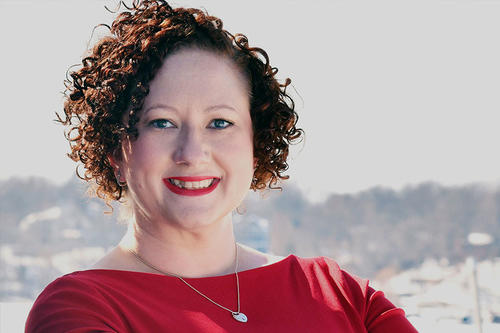
Christina Norris graduates this spring with a bachelor’s in Family Social Science and already has set her sights on a double master’s degree. But her path has been anything but conventional. The first-generation college student never stopped striving for a college degree despite health and family setbacks and a host of other detours.
Although she dropped out of high school at 16, Norris got her GED at 19 and set a goal to get a degree at the University of Minnesota. She began her academic career at Minneapolis Community and Technical College, where she describes the challenges that many first-gen students face.
“When you’re a high school dropout with no one to help guide you through this process … you often just take whatever classes sound appealing to you,” says Norris. “And take classes I did! I have more humanities courses than one person could ever need!”
After several years, two babies, and time building a career, she finished an associate’s degree in liberal arts with more credits than she would need for a bachelor’s degree. Moving to the U of M, she initially began in the College of Liberal Arts but then discovered Family Social Science through the College of Education and Human Development.
“In my attempt to find resources for my beautiful son, I found there was a lack of true resources for transgender and gender-diverse children and adolescents.” — Christina Norris
“I chose Family Social Science because I knew that my passion was in supporting families,” says Norris.
Her plan was coming to fruition in the spring of 2014 when she contracted hand, foot, and mouth disease, which forced her to withdraw from school. She might not have returned but when one of her children came out as transgender, it motivated her to not just finish her bachelor’s degree but seek a graduate degree, too.
“In my attempt to find resources for my beautiful son, I found there was a lack of true resources for transgender and gender-diverse children and adolescents,” she says. “I knew I was simply going to have to get a master’s or more and fix this problem.”
As she looks beyond commencement and to grad school, she shares advice for other first-gen students.
“My biggest piece of advice from my heart is there is nothing you cannot do, and it is never too late to do it,” she says. “I hate to sound cliché, but nothing can hold you back. … I am 36 years old, and I have four children, and I will not let that stop me from moving forward.” Norris will continue her journey next year in the master’s programs of both the School of Social Work and the School of Public Health as she seeks to address health disparities faced by transgender individuals and their families.
She’s even considering a doctoral degree if it will help her address the issues about which she feels so passionate. “If (when?) I decide to pursue my PhD, it’ll be here as well,” she says.





